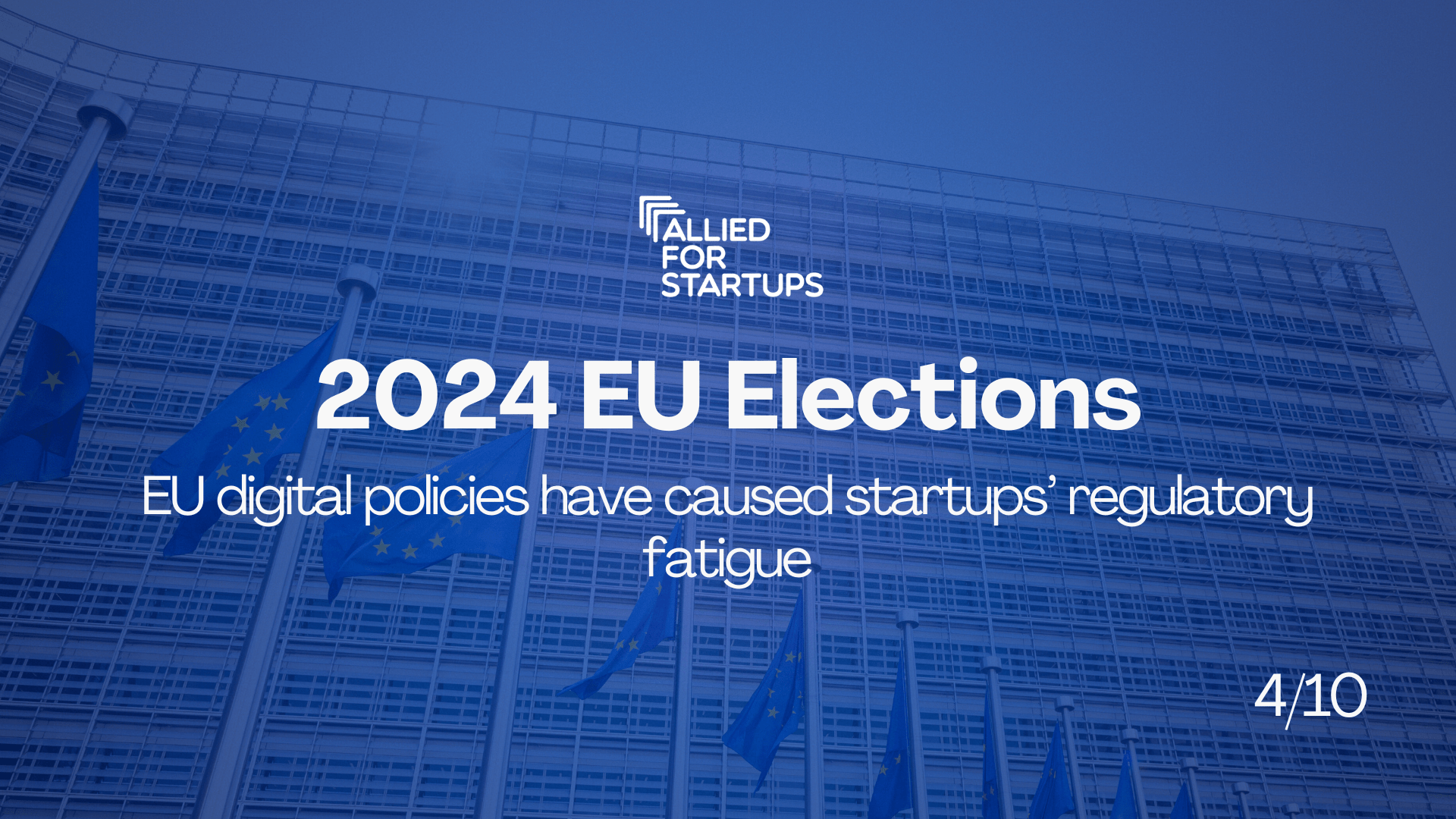Digital policies in the EU: Startups feel the regulatory fatigue
In the dynamic arena of digital innovation, startups serve as engines of creativity and economic growth. However, amidst the hustle and bustle of the European Union’s legislative landscape, startups are encountering a formidable challenge: regulatory fatigue. As Allied for Startups is committed to fostering an environment where startups can thrive, we advocate in our EU Elections Manifesto for a strengthened Digital Single Market, free from unnecessary new barriers and burdensome regulations. As discussions surrounding EU digital policies unfold, it is essential to recognise the impact of regulatory overreach on the entrepreneurial spirit and innovative potential of startups.
The discord amongst policymakers within the EU reflects a fundamental divide in approaches towards digital regulation. On one side, some voices advocate for expansive measures, such as the Digital Networks Act, to be added to the new EU tech legislative arsenal now composed of the Digital Services Act, the Digital Markets Act, the Cyber Resilience Act, the AI Act, the Product Liability Directive, etc. However, the implications of such burdensome proposals on startups cannot be overstated. Introducing additional regulatory hurdles could stifle innovation, impose disproportionate compliance costs, and hamper the ability of startups to scale and compete effectively.
Fortunately, many others advocate for a more realistic approach. In the European Parliament, MEPs like Czech liberal Dita Charanzova argue that the EU should be enforcing existing laws rather than creating new ones, particularly after the “tsunami of EU tech regulations” that occurred during the 2019-2024 mandate. Regarding the Member States, the Belgian Council presidency has been working on Council conclusions on the future of digital policy, and therein highlights “the significant number of EU legislative acts” as well as “the need to prioritise their effective and efficient implementation”, adding that “any new legislative act with a view to preventing the risk of hampering the establishment of an agile and innovation-friendly European ecosystem” should be carefully assessed. Even Executive Vice-President Margrethe Vestager said that the Commission now needed to ensure “that the legislation that has now been passed is actually implemented and enforced.” As startups will now need to navigate the labyrinth of recently-passed EU regulations, they most certainly could use a break to focus on how to comply with them.
In this context, startups find themselves at a crossroads. Overregulation not only hampers innovation and stifles entrepreneurship but also undermines the EU’s overarching goal of fostering a thriving digital ecosystem. Allied for Startups continues to advocate for policies that strike the right balance, empowering startups to innovate, scale, and drive economic growth. Regulatory initiatives must be carefully calibrated to support rather than stifle the entrepreneurial spirit and innovative potential of startups.

